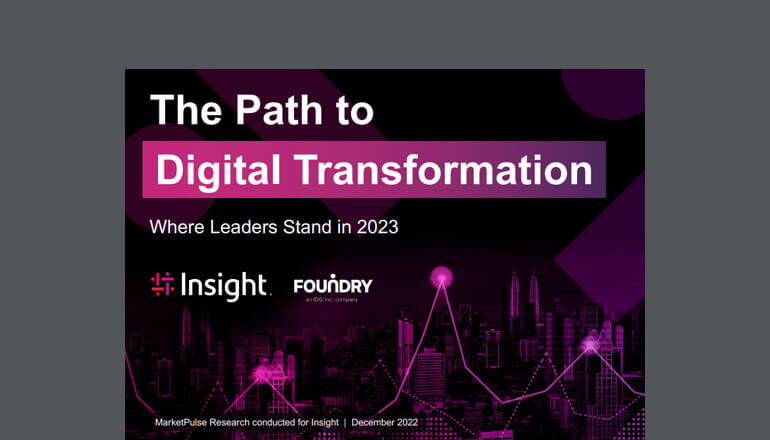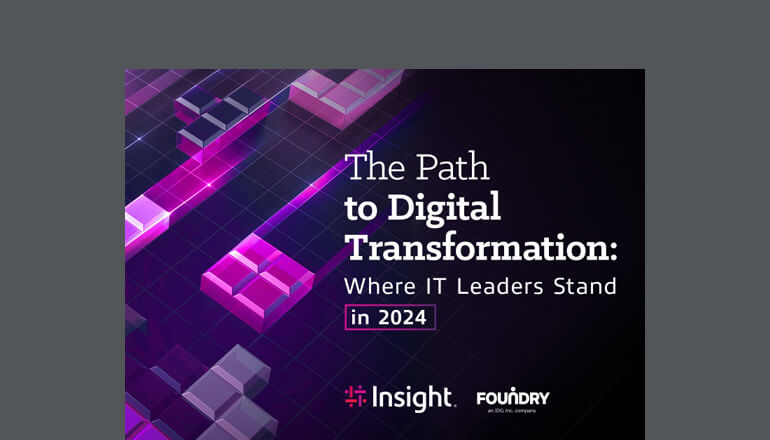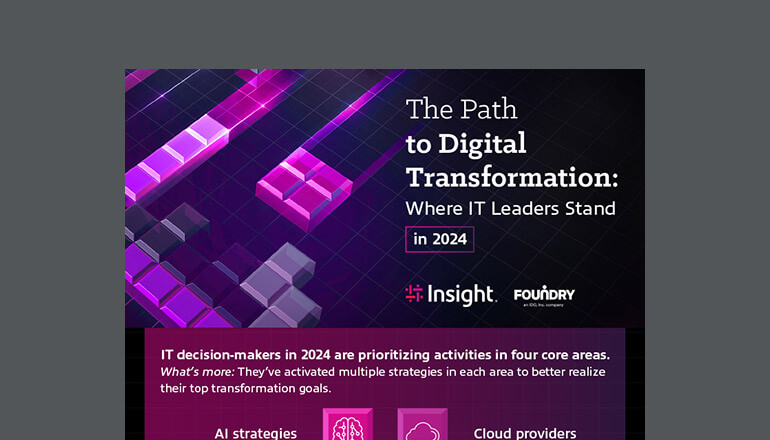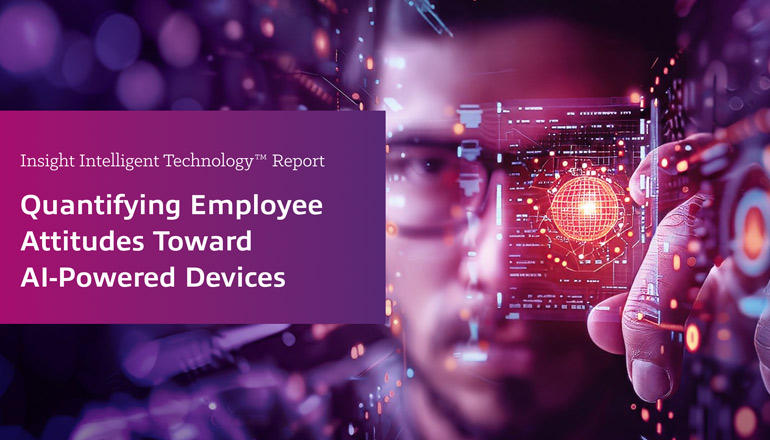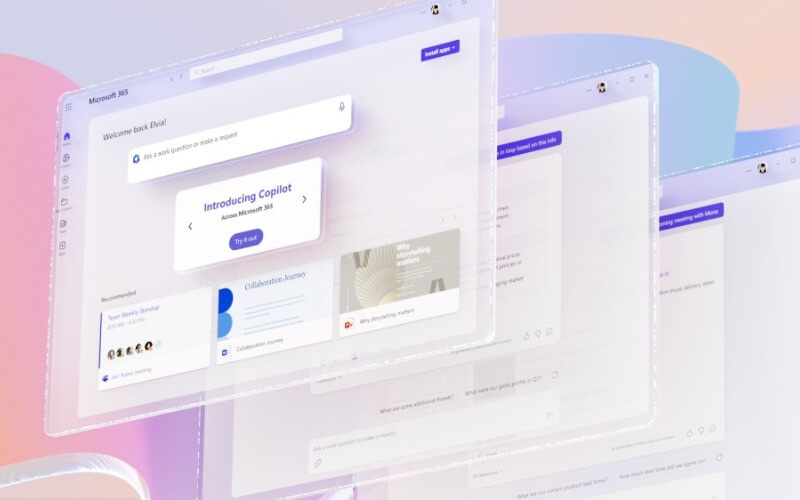Blog AI will radically enhance workplace productivity – here’s how to prepare for it
By Insight Blog / 30 Jun 2023 / Topics: Artificial Intelligence (AI) , Generative AI
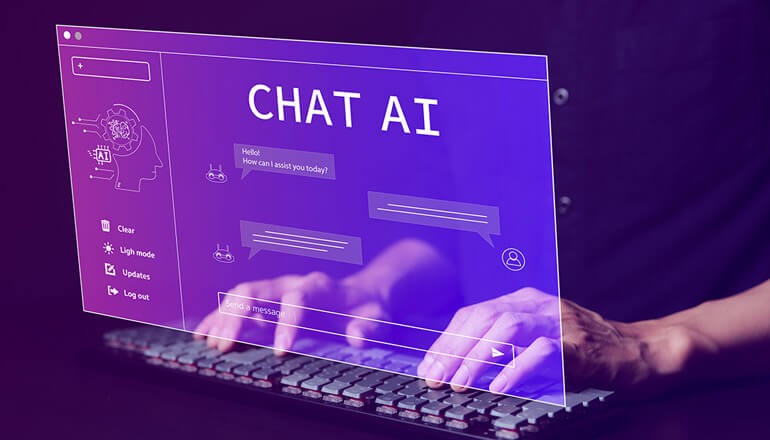
We are at the edge of the biggest advancement in technology since the computer. AI will change the way we work, learn, travel and connect. I am hugely optimistic about where AI can take us – albeit with the right safeguards in place.
Every day, new developments in AI bring with them new opportunities to transform the way we work – and we at Insight are excited to help you embrace that potential. For a start, AI can help businesses address one of their biggest recent challenges – to turnaround lagging workplace productivity.
Microsoft's latest Work Trend Index tells us that 62 per cent of workers spend too much time searching for information in their workday. People also spend up to 23 per cent of their day on Microsoft Excel and around 18 per cent on Microsoft PowerPoint – at least some of which time they might more productively be spending on solving higher level problems.
How do we change this? Can we optimise the time people spend on these apps and at work to ensure that we can maximise productivity and creativity? Here are three ways I see AI transforming workplace productivity.
1. Amping up your application use
The typical employee uses only approximately 10 per cent of the full functionality of their work apps. AI can be trained to learn and automate the other 90 per cent. Organisations don’t need to invest time and resources in training and upskilling people as AI can embed that training into each individual’s workflow.
AI like Microsoft 365 Copilot, for example, works alongside you to efficiently produce first drafts for you to edit in Microsoft Word. It can also create beautiful presentations in Microsoft PowerPoint based on your content and data visualisations off that same content in Microsoft Excel in seconds.
2. Transforming customer service
Customer expectations for personalised, intuitive and intelligent customer service experiences. AI can help your customer service team streamline their workflow, address requests faster, and proactively anticipate customer needs.
Sales is the growth engine of any business. Developing customer relationships, listening actively and understanding customer pain points is crucial. It’s therefore worrying to learn that salespeople actually spend up to 34 per cent of their time on administrative tasks in their customer relationship management (CRM) systems.
That’s time taken away from more meaningful customer interactions. Imagine instead a built-in AI assistant that could annotate and document information – freeing up salespeople to spend more time talking to or even visiting customers. There is potential to revolutionise the process for salespeople who have the forethought to take advantage of such innovations.
3. Automating enterprise processes and operations
We are already seeing automation and AI embedded in everyday tools to make life easier, and I expect this will accelerate in the coming months. Around 89 per cent of employees report feeling more fulfilled with AI and automation taking care of mundane and repetitive tasks.
For example, Microsoft Dynamics 365 Copilot – the world’s first AI assisted CRM and enterprise resource planning (ERP) system – will not only transform service, but has the power to assist marketing, e-commerce, supply chain management and finance.
We’ve also seen more extreme examples of AI in business decision-making, like China-based video game company NetDragon Websoft, which appointed an AI bot as its CEO in August 2022.
Examples like this will increase concerns about job losses. However, my belief is that AI itself won’t replace us in our jobs – although if we don’t embrace and use AI, we may be replaced by people who are willing to do so.
4. Embracing AI, reimagining productivity
Organisations also need to embrace AI while understanding and mitigating its potential pitfalls. This means implementing sound AI governance frameworks in terms of what information you will and will not give it access to. It also means establishing rules and procedures around what it is used for in your organisation and providing training to staff.
Only after these three steps are completed should you look into deploying tools to implement and embed AI in your organisation. The trick will be to keep up with rapid development of AI tools, because I firmly believe that the role of AI in our future will look vastly different from anything we can currently envision.
I also believe that if we learn to embrace AI, it can be a great enabler for work-life balance. Just as the cloud allowed people to stay productive from wherever they are – whether it’s at home when you need rest or from the carpark at your child’s football game – so too can AI shift the way we approach work to make room for other important things in our lives.

Roland Leggat
Modern Workplace Specialist, Insight Enterprises
With more than 20 years of industry experience, Roland focuses on the Microsoft stack of technologies to help identify customer business and technology challenges and realise the business value of Modern Workplace solutions.

Have you been briefed?
Discover reports, stories and industry trends to help you innovate for the future.
